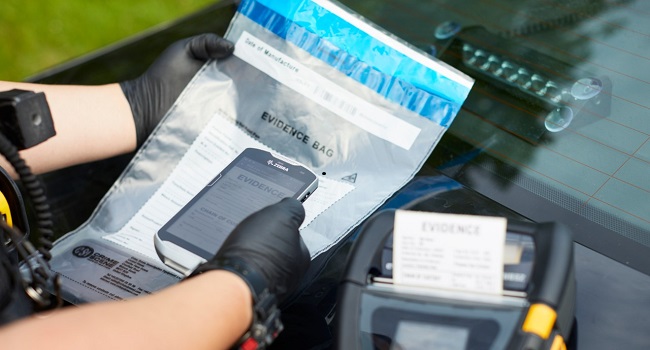Unlocking digital potential
Charlotte Hails, Head of Public Sector Vertical Strategy at Virgin Media O2 Business looks at how the use of external partnerships can build digital confidence in policing.
The state of play concerning digital, data and technology within policing is in critical condition. The latest research on the topic has signalled that over half of police staff and officers (55 percent) are not satisfied with their own force’s ICT provision, expressing concerns over the reliability of their systems.
One of the key issues surrounding policing technology is the inability to effectively share information between existing systems. This sentiment is echoed by our Power of Information report, produced alongside the Police Foundation, where the lack of interoperability of technology is highlighted as the single biggest obstacle to policing exploiting the power of the data it holds.
Information is often scattered and inaccessible. Disjointed systems also mean that forces themselves aren’t interoperable and able to fully harness their data, resulting in wasted time, duplicated efforts, and reduced productivity. The daily impact of this is that officers are working with different formats on different systems with no consistency, increasing the risk of input errors.
This is the great challenge of a policing system that is fundamentally devolved but has everyone recognising the need for intelligence and data sharing to be done centrally.
The challenge of short termism
The Power of Information report reveals a bigger issue around culture and mindset; a lack of focus on the future in which a short-term outlook seems to always prevail. Because of a multitude of competing priorities, police leaders often accept at face value the technology presented to them.
That technology, although presented with good intent, might not always be what is actually needed. This is an example of ‘magpie syndrome’, where police leaders focus on the emergence of a new technology but fail to think strategically about how to effectively implement and use it to drive transformation.
Speaking on the topic, Scot Dunn, Chief Digital and Innovation Officer at Humberside Police stated, “We can’t adopt technology for technology’s sake, just because it’s shiny. We have to start with the problem we’re trying to solve. We need to be really clear on how technology is going to drive us forward and, more importantly, how it will drive things forward for the public.”
Connectivity: the backbone for digital-first policing
First-class digital infrastructure needs to underpin all of this, and forces can’t facilitate their digital transformation efforts without having a robust connectivity network. These foundations ensure police officers and staff can exchange data and communicate instantly and securely, even in time-critical situations. With seamless connectivity, teams have access to the information they need, when they need it, empowering them to work efficiently and respond effectively.
Achieving more together
These technology and culture challenges aren’t ones forces can face alone. They must embrace innovation through collaboration. Collaboration with other forces, and with the private sector.
But our research has shown that nearly 30% of public sector decision makers say policing lacks support from suppliers and partners.
Without robust partnerships, police tech purchasing decisions are unlikely to deliver the effective and efficient solutions that forces need. In fact, 70% of policing staff and officers feel their force fails to invest wisely in technology.
By partnering with industries already leading in digital transformation, police forces can gain access to advanced technology, expertise, and proven strategies for unlocking the potential of their data. These external partnerships hold the key to building digital confidence in policing and delivering more effective services to the public.
Partners are not just service providers; they can be problem solvers and a vessel for knowledge exchange. A strategic partnership, unlike a simple transactional provider relationship, is elevated by the mutual desire to learn and grow together.
Scot Dunn also adds “Our partners and suppliers can help address the digital skills gap in policing: it can’t be a purely customer and supplier relationship – there needs to be an element of guiding and advising.”
At Virgin Media O2 Business, we partner with many police forces to deliver the tools and expertise to address their unique challenges. Through collaboration rooted in trust and honesty, we work with police forces and engage in strategic conversations to help empower frontline officers and ultimately optimise resource deployment. With this support in place, officers and staff are likely to have increased confidence in their role, having faith in the tech available to them. It can help alleviate some of the pressures forces face concerning talent retention and workforce mental health, fostering a sense of purpose and resilience among staff and officers so that they can deliver meaningful outcomes for the communities they serve.





